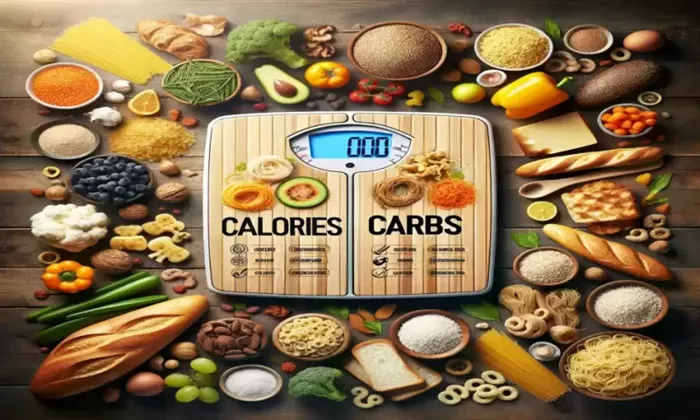When it comes to achieving your fitness goals, nutrition plays a crucial role. Two common terms that dominate the fitness diet conversation are “carbs” and “calories.” Both are essential components of a balanced diet, but which one should you prioritize for optimal fitness results? In this article, we will break down the significance of carbs and calories, and explore their roles in muscle building, fat loss, and overall performance. By the end of this article, you will have a clearer understanding of how to tailor your nutrition for the best fitness outcomes.
Understanding the Basics: What Are Carbs and Calories?
What Are Carbs?
Carbohydrates, often referred to as carbs, are one of the three macronutrients your body needs, along with protein and fats. Carbs are the body’s primary source of energy, particularly during exercise. They are broken down into glucose, which is used by muscles as fuel during physical activity. Carbs can be categorized into simple carbs (sugars) and complex carbs (starches and fiber).
What Are Calories?
Calories are units of energy. Every food and drink you consume contains a specific number of calories, which provide the energy required for various bodily functions, including digestion, breathing, and physical activity. The total number of calories you consume in a day is important because it dictates whether you gain, maintain, or lose weight. In simple terms, if you consume more calories than you burn, you will gain weight; if you consume fewer calories than you burn, you will lose weight.
The Role of Carbs in Fitness
Carbs are crucial for anyone engaging in regular physical activity, especially endurance and high-intensity workouts. Here’s why carbs should not be overlooked when planning your fitness diet.
Energy for Intense Workouts
During high-intensity exercises, such as weightlifting or sprinting, your body relies on stored glycogen (a form of glucose derived from carbs) to fuel the muscles. Without sufficient glycogen, you may experience fatigue and diminished performance. This is why athletes and gym-goers often ensure they have enough carbs in their diet before workouts.
Recovery After Workouts
After a strenuous workout, your muscles need to recover. Consuming carbs helps replenish glycogen stores in the muscles, which accelerates recovery and reduces muscle soreness. Consuming carbs along with protein in your post-workout meal is highly beneficial for muscle repair.
The Role of Calories in Fitness
Calories are the foundation of energy intake. Understanding how calories impact fitness can help you optimize your diet for muscle gain or fat loss, depending on your goals.
Weight Management and Fat Loss
One of the main reasons calorie intake matters for fitness is that it influences body weight. If you’re aiming to lose weight, you need to consume fewer calories than you burn (a calorie deficit). On the other hand, if you’re looking to gain muscle, you need to eat more calories than you burn (a calorie surplus). Tracking your calories is key to achieving your desired body composition.
Preventing Overtraining and Maintaining Energy
Consuming too few calories can lead to energy depletion, making it difficult to perform well in the gym. Additionally, severe calorie restriction can lead to muscle loss, which negatively affects both strength and performance. Therefore, maintaining a balanced calorie intake is important for sustaining energy and avoiding fatigue during workouts.
Carbs Vs Calories: Which Should You Prioritize?
Both carbs and calories play vital roles in your fitness journey. However, depending on your specific goals, one may take precedence over the other.
If Your Goal is Weight Loss
If you’re aiming for fat loss, controlling your calorie intake is the most important aspect of your diet. A calorie deficit is necessary for weight loss, so you need to ensure that you are consuming fewer calories than your body needs for energy. This doesn’t mean you should eliminate carbs, as they are essential for workouts, but controlling your total calorie intake is key. Focus on nutrient-dense foods to maximize fullness and prevent overeating.
If Your Goal is Muscle Gain
When building muscle, calories matter, but so do carbs. A slight calorie surplus is often required to fuel muscle growth. Since carbs help with recovery and provide energy for workouts, ensuring you consume enough is crucial for muscle gain. A well-balanced diet, with a focus on both quality calories and an adequate carb intake, will give you the best results.
Balancing Carbs and Calories for Optimal Fitness
While both carbs and calories are important, the key to achieving your fitness goals lies in balancing them correctly. Rather than focusing exclusively on one, consider the following tips:
- Customize Your Calorie Intake: Everyone’s caloric needs are different, so it’s essential to personalize your diet.
- Focus on Quality Carbs: Not all carbs are created equal. Simple carbs, such as sugars, provide quick energy but are often empty calories. Instead, prioritize complex carbs such as whole grains, vegetables, and legumes, which provide sustained energy and essential nutrients for overall health and fitness.
Incorporate Healthy After Gym Meals
Post-workout meals are a great opportunity to replenish both carbs and calories. Opt for healthy after gym meals that include a balance of protein, carbs, and healthy fats to aid muscle recovery and replenish glycogen stores. A meal that combines lean protein with whole grains and vegetables will give your body the nutrients it needs to recover.
Conclusion
In conclusion, both carbs and calories are essential for fitness, but their importance depends on your specific goals. If you’re looking to lose weight, focusing on calorie control is crucial, while if muscle gain is your goal, prioritizing a slight calorie surplus along with sufficient carb intake is key. Ultimately, achieving a balanced diet that includes the right number of calories and quality carbs will help you reach your fitness objectives efficiently. Remember, consistency in your diet and workout routine is vital for success.
Related Topics:
Why Do Athletes Eat Carbohydrates Before Working Out


